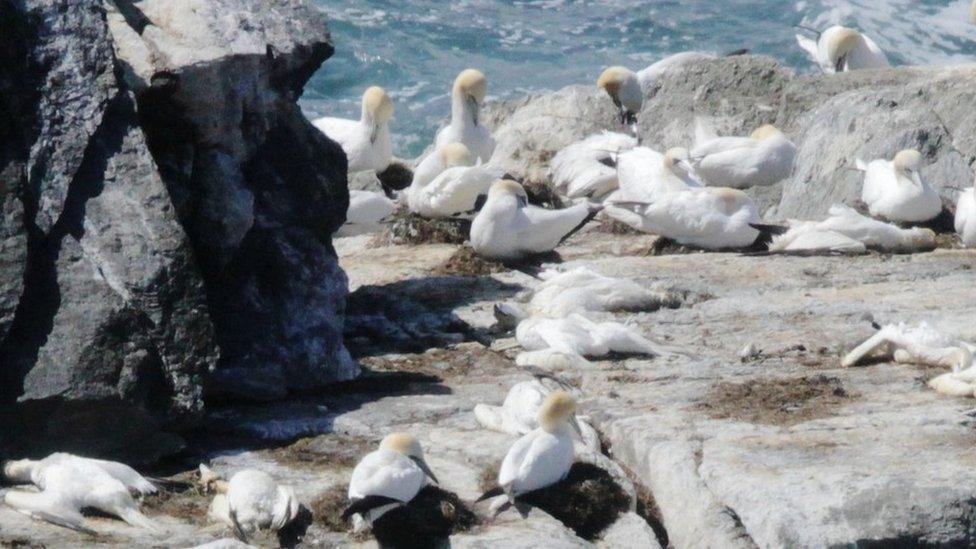Bird flu: Gannets on Pembrokshire island die of virus
- Published
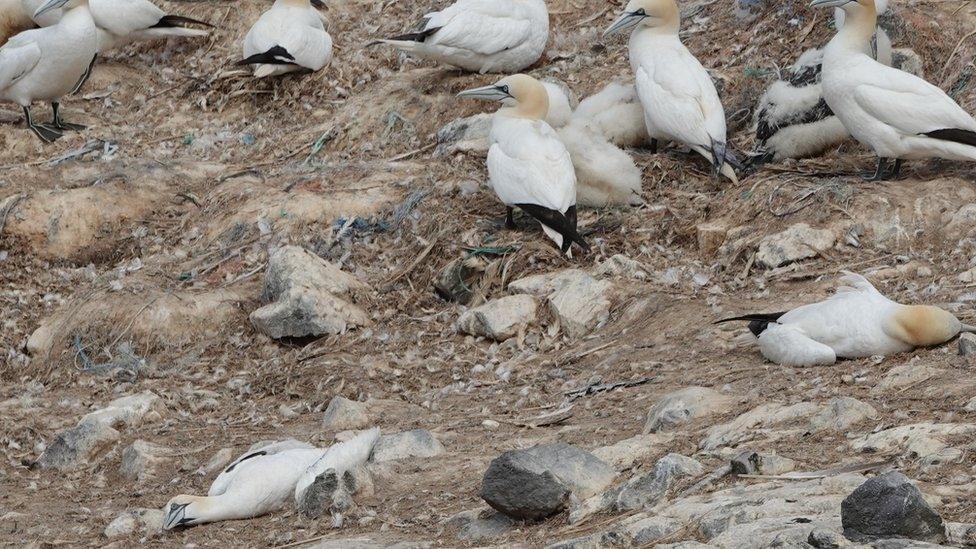
Bird flu has been confirmed as being responsible for killing dozens of birds on Grassholm
Dozens of dead gannets have been killed by bird flu on an island off the coast of Wales and it is feared thousands more could die of the virus.
RSPB Cymru said the worst case scenario could see the colony of 36,000 pairs wiped out on Grassholm Island off Pembrokeshire.
In Scotland more than 1,000 dead birds had been collected by last month after an outbreak on Bass Rock.
Grassholm is Earth's third largest gannet colony and one of two in Wales.
RSPB Cymru's head of species, Julian Hughes, said: "It has the potential to be really serious as it is highly contagious.
"It's jumped from the poultry industry in south-east Asia, that is how it got into the wild bird population."
As birds migrate, the strain of H5N1 has spread around the world.
Mr Hughes said the cause of death was confirmed by tests carried out at the Animal and Plant Health Agency in Surrey.
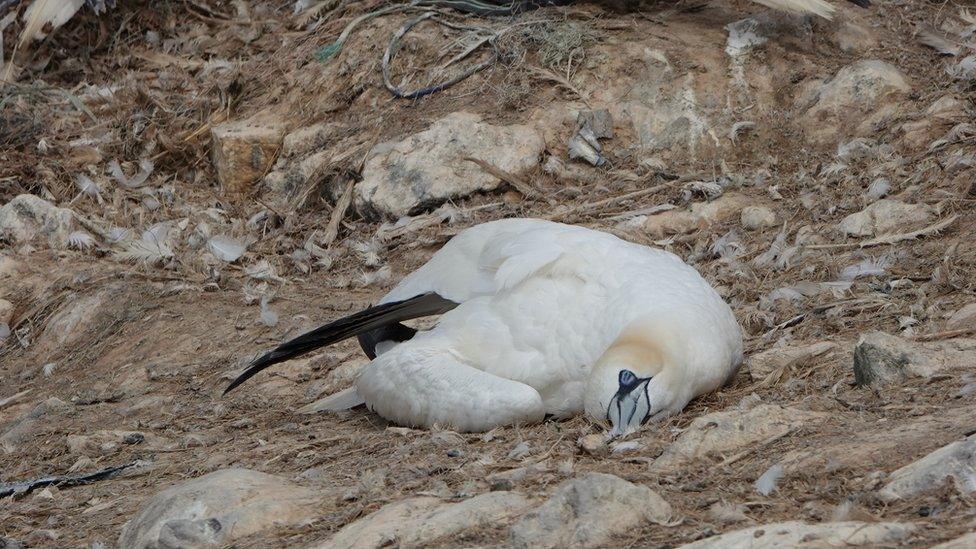
The disease has spread across the world as birds migrate
Mr Hughes said: "We have seen a couple of dozen deaths to date. We became aware there was a cluster of dead birds about 10 days ago.
"To find a few dead birds is not uncommon, but when we went back last week we found even more and that is when we sent them to be tested.
"It was a couple of dozen birds when we went there last week, but that could turn into hundreds or thousands."
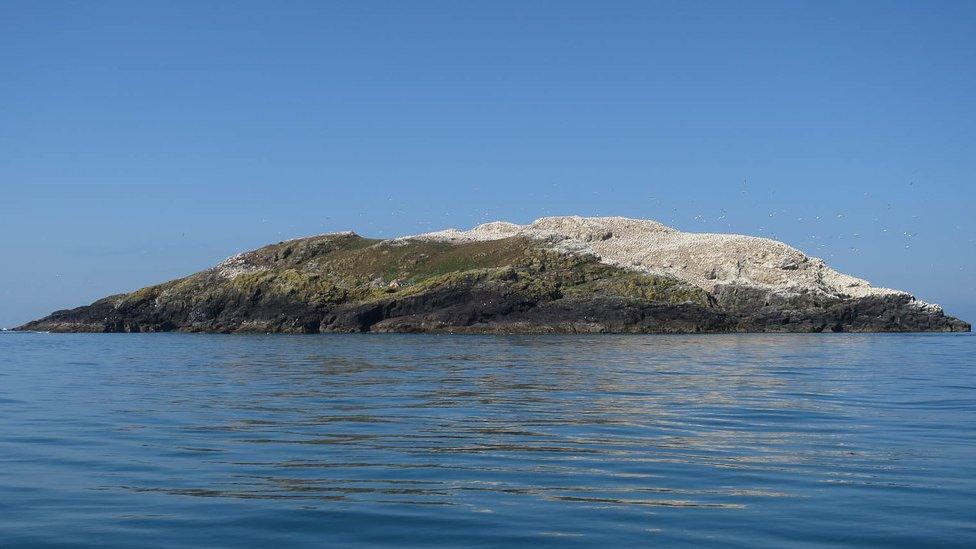
The survival rate of the disease in wild birds is unknown
The disease is spread through bird poo and a large part of Grassholm is carpeted with it.
"What happens over the next few weeks will determine what happens, whether it will be devastating to the colony, as on Bass Rock, or whether it will remain localised in one part of the colony."
Mr Hughes said the entire colony could be wiped out.
"Thirty-six thousands pairs is 72,000 birds so there might be 100,000 birds there," he said.
"It could do that but it could remain quite localised."
The RSPB's Greg Morgan wrote on the charity's website: "You may come across dead or dying gannets, or other seabirds, washed in on beaches around Pembrokeshire.
"The advice is not to touch these birds, keep dogs away from them and report to DEFRA."
- Published5 March 2022

- Published16 June 2022
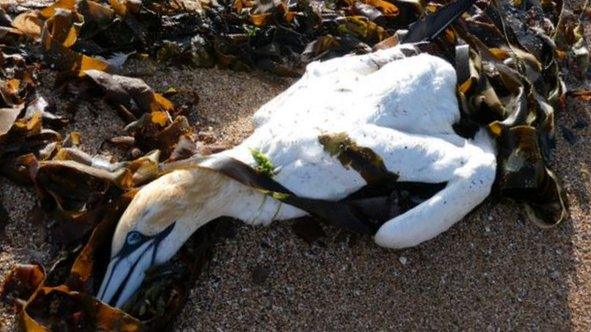
- Published14 June 2022
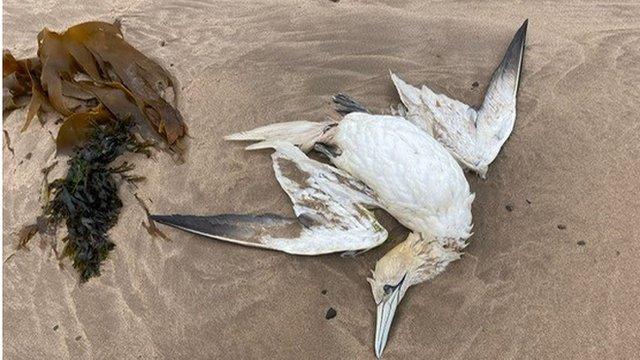
- Published6 June 2022
